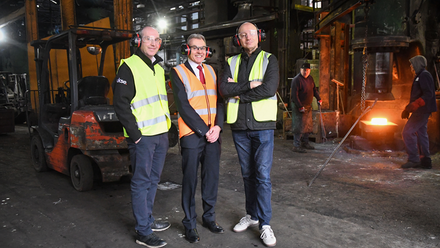Budget tax hike bursts business confidence – British Chambers

In the largest poll of business sentiment since October’s Budget, the British Chambers of Commerce’s Quarterly Economic Survey, shows concern about tax, including national insurance, has spiked.
Following the Chancellor’s autumn statement, 63 per cent of firms cited it as a worry (compared with 48 per cent in Q3), the highest level on record.
Concern about inflation and interest rates remains at similar levels to Q3.
Business confidence has declined significantly with 49 per cent of responding companies expecting their turnover to increase over the next twelve months (compared with 56 per cent in Q3).
Confidence levels are lowest in the retail and hospitality sectors (39 per cent and 42 per cent respectively).
The survey was conducted after the Budget, with the fieldwork carried out between 11 November and 9 December.
The data from over 4,800 businesses across the UK (91 per cent of whom are SMEs – fewer than 250 employees) also shows that the majority of firms are expecting to raise prices.
Following the Budget, concern about taxation is now cited by 63 per cent of responding firms, up from 48 per cent in Q3.
This is the highest level of tax concern since 2017, when the BCC started asking this question.
The levels in certain sectors are higher, with 72 per cent of production and manufacturing firms, and 68 per cent of construction and engineering businesses raising tax as a concern.
Concern about inflation remains broadly similar to the previous quarter – 47 per cent compared to 46 per cent in Q3. Worry about interest rates has fallen slightly to 28 per cent (29 per cent in Q3).
There has been a significant drop in business confidence since the Chancellor’s statement.
Only 49 per cent of firms say they expect their turnover to increase in the next twelve months, down from 56 per cent in Q3.
This is the lowest figure since the aftermath of the mini budget in late 2022. A fifth (21 per cent) of businesses expect turnover to worsen, up from 15 per cent in Q3, and 30 per cent expect no change.
Profitability confidence has also been hit, 40 per cent of firms expect profits to increase over the next year (48 per cent in Q3), while 32 per cent of businesses expect them to fall.
Over half (55 per cent) of responding firms say they expect to raise their prices in the next three months, compared with 39 per cent in Q3.
While 43 per cent of businesses expect prices to stay the same, and only 2 per cent expecting to decrease.
Only 20 per cent of businesses say they have increased investment plans over the last quarter, down from 23 per cent in Q3. 24 per cent of firms say they have cut back investment plans, a steep rise from the Q3 figure of 18 per cent. 56 per cent of businesses say their plans have remained the same.
The percentage of respondents reporting increased domestic sales has fallen again to 32 per cent, compared to 35 per cent in Q3. 42 per cent reported no change and 26 per cent of firms said they had seen a decrease in sales.
Retailers were the most likely to have seen a fall in sales (36 per cent) followed by manufacturers (33 per cent).
Shevaun Haviland (pictured), director general of the British Chambers of Commerce said: “The worrying reverberations of the Budget are clear to see in our survey data. Businesses confidence has slumped in a pressure cooker of rising costs and taxes.
“Firms of all shapes and sizes are telling us the national insurance hike is particularly damaging. Businesses are already cutting back on investment and say they will have to put up prices in the coming months.
“The Government is rightly coming up with long-term strategies on industry, infrastructure and trade. But those plans won’t help businesses struggling now.
“Business stands ready to work in partnership to make the proposed Employment Rights legislation work for all, but the current plans will add further costs on firms.
“To help business we need to see quick action in three specific areas. Firstly, ministers should accelerate business rate reform to create a system that incentives investment.
“We also need the Government to speed up infrastructure investment, to help SMEs in supply chains across the country. Finally, it’s crucial to support exports, prioritising a better trading deal with the European Union.
“Without urgent Government action to ease the pain on businesses, the challenging economic landscape will get worse before it gets better.”



